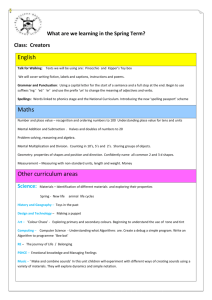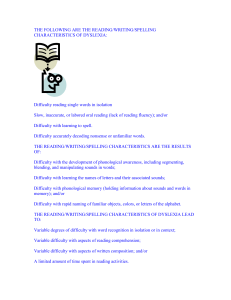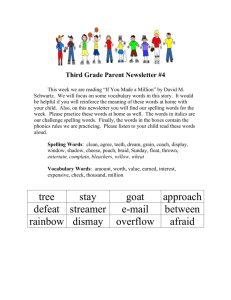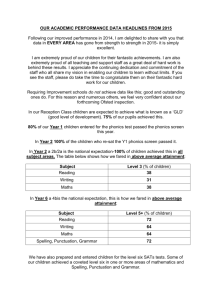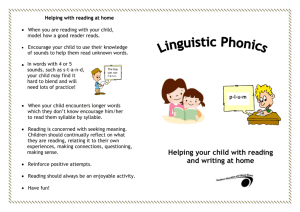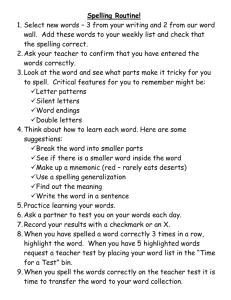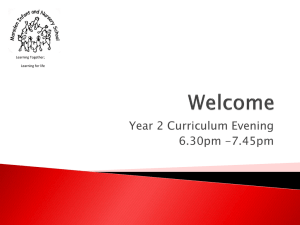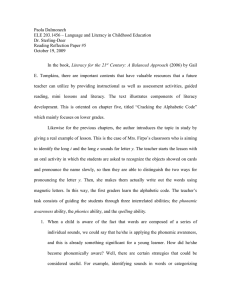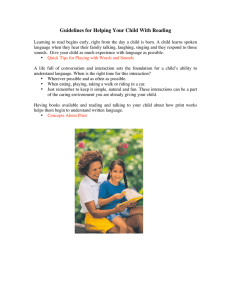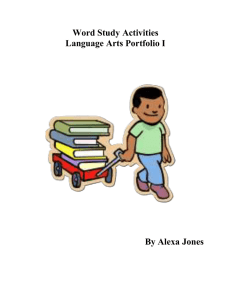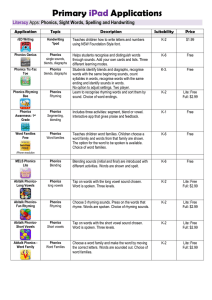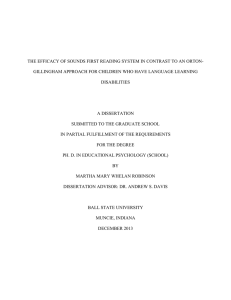How can I help my KS1 child? Reading Read little and often with
advertisement
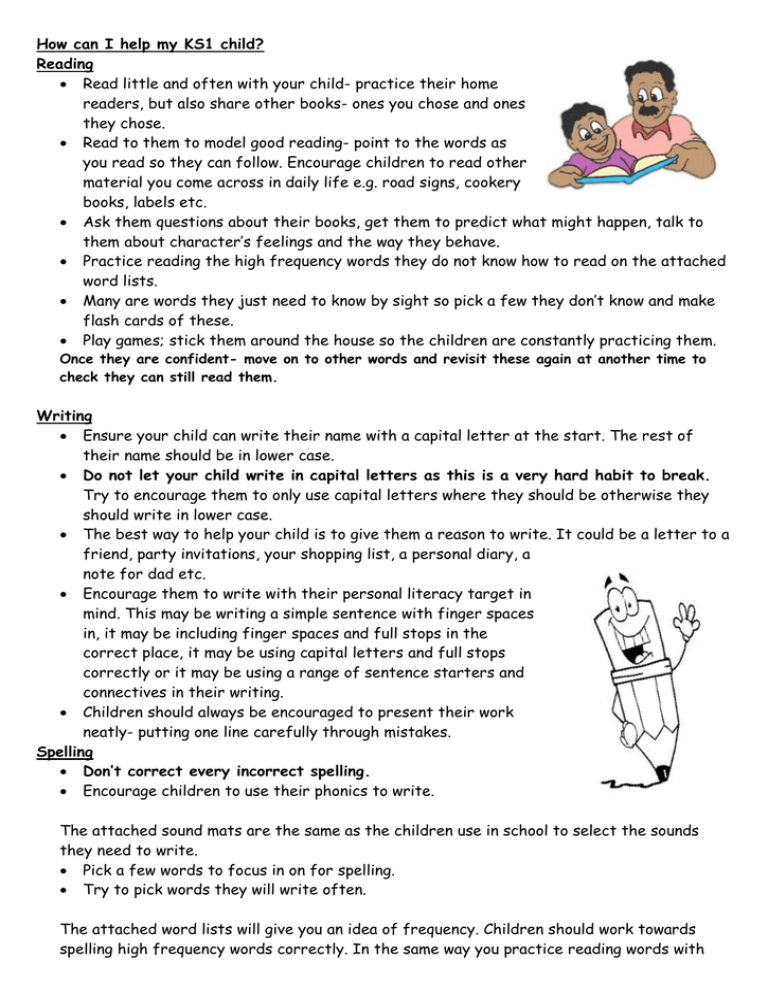
How can I help my KS1 child? Reading Read little and often with your child- practice their home readers, but also share other books- ones you chose and ones they chose. Read to them to model good reading- point to the words as you read so they can follow. Encourage children to read other material you come across in daily life e.g. road signs, cookery books, labels etc. Ask them questions about their books, get them to predict what might happen, talk to them about character’s feelings and the way they behave. Practice reading the high frequency words they do not know how to read on the attached word lists. Many are words they just need to know by sight so pick a few they don’t know and make flash cards of these. Play games; stick them around the house so the children are constantly practicing them. Once they are confident- move on to other words and revisit these again at another time to check they can still read them. Writing Ensure your child can write their name with a capital letter at the start. The rest of their name should be in lower case. Do not let your child write in capital letters as this is a very hard habit to break. Try to encourage them to only use capital letters where they should be otherwise they should write in lower case. The best way to help your child is to give them a reason to write. It could be a letter to a friend, party invitations, your shopping list, a personal diary, a note for dad etc. Encourage them to write with their personal literacy target in mind. This may be writing a simple sentence with finger spaces in, it may be including finger spaces and full stops in the correct place, it may be using capital letters and full stops correctly or it may be using a range of sentence starters and connectives in their writing. Children should always be encouraged to present their work neatly- putting one line carefully through mistakes. Spelling Don’t correct every incorrect spelling. Encourage children to use their phonics to write. The attached sound mats are the same as the children use in school to select the sounds they need to write. Pick a few words to focus in on for spelling. Try to pick words they will write often. The attached word lists will give you an idea of frequency. Children should work towards spelling high frequency words correctly. In the same way you practice reading words with flash cards you could focus in on a few words to learn to write correctly. It is amazing how many very able writers still spell ‘was’ ‘went’ ‘what’ and ‘then’ incorrectly! Phonics By the end of Reception children should be confident in Phase 4 phonics. This means they should recognise all sounds on the attached Phase 2, 3 and 4 sound mats. Practice any sounds with your children that they do not know. Practice reading and spelling words with these sounds in. An excellent website to access is http://www.phonicsplay.co.uk/ Access the free resources- there are plenty of fun games for your children to do to practice learning and applying their sounds. Maths Ensure your children can read and write their numbers- initially to 10, then 20 and then beyond. Practice placing numbers in order. They do not need to be numbers that are consecutive. For example you could ask them to order 26, 19, 8 and 36. Practice number bonds with your children. Most useful to learn initially are the numbers that add together to make 5, then 10, then 100 etc. For example the number bonds of 10 are: 0 and 10, 1 and 9, 2 and 8, 3 and 7, 4 and 6, 5 and 5, 6 and 4, 7 and 3, 8 and 2, 9 and 1 and 10 and 0 Practice applying maths by playing games with your children, use real life problems; when handling money- making amounts to pay for things, working out change, reading amounts on labels when baking a cake measuring out the ingredients or counting out the things needed Look at patterns in numbers e.g. on street doors, bus or cinema seats Count cars or read number plates. By the end of Year 2 children should be able to count in multiples of 2s, 3s, 5s and 10s Practice counting in these amounts with your children and ask them questions to practice using this knowledge. If I give you and your brother 5 sweets each how many sweets do I need to buy? A good website for maths games is http://www.ictgames.com/resources.html This website also provides some good literacy games. Hope this information is helpful Thanks for your support The KS1 Team
